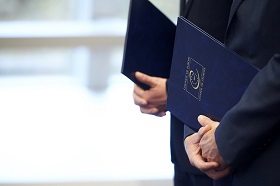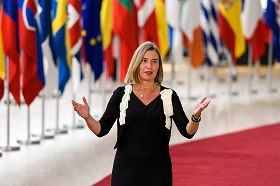The standoff between European pragmatists and skeptics on Russia won’t end here. The pragmatists will now face heightened political risk for a long time, both in the Council of Europe and in their own countries. Any actions or even statements by Russia that could directly or indirectly confirm the skeptics’ fears will now unleash a barrage of criticism not only of Moscow, but also of those who allowed the Russian delegation to return to the Parliamentary Assembly.
In a late-night debate on June 24, the Parliamentary Assembly of the Council of Europe (PACE) in Strasbourg passed a resolution reforming the mechanism for applying sanctions against its member countries, and restoring the full rights of the Russian delegation, which had been curbed in 2014 over events in Ukraine. The resolution was voted for by 118 deputies, while sixty-two voted against it and ten abstained.
The Ukrainian delegation and its allies had introduced 220 amendments to the resolution in an attempt to stop it being passed, but only one was upheld. About a third of the deputies demonstrated their opposition to the motion by voting for each amendment, including deputies from the UK and the Baltic states. Following the passing of the resolution, Ukraine recalled its ambassador to the Council of Europe for consultations.
Perhaps under other circumstances, the conflict over Russia’s restored voting rights in PACE wouldn’t have attracted so much attention. After all, the Council of Europe isn’t the UN Security Council or NATO: it’s a small organization with a very modest budget, a small staff, and a mandate largely limited to rights issues. The Parliamentary Assembly has a mainly consultative function, with the exception of elections for heads of the Council of Europe.
But the conflict in PACE took place in the right place at the right time, coinciding as it did with elections to the European Parliament, a change in government in Kiev, and political upheaval in several leading European countries. Once again, the question at this juncture in European history is how to build—and how not to build—a relationship with Moscow. The current discussion over the Russian delegation’s status in PACE reflects the broader polemic over Russia’s future place in Europe, as well as attempts to take stock of the hopes and disappointments of the five years that have passed since the outbreak of the Ukraine crisis.
The two sides in this argument can be designated as pragmatists and skeptics. Of course, the former will be described by their sworn enemies as collaborators, appeasers, even as Putin’s useful idiots. The skeptics, in turn, will be castigated as radicals, Russophobes, and irresponsible political intriguers.
The first key disagreement between the sides is that the pragmatists believe that Russia’s membership in the Council of Europe and the bodies it oversees, such as the European Court of Human Rights (ECHR), have had a positive effect on Russia’s legal culture and human rights situation. They cite the reform of the penitentiary system, the moratorium on the death penalty, the introduction of civilian service as an alternative to military service, and so on. Many Russians have been awarded compensation by the ECHR for unlawful detention or prosecution.
The skeptics point out that the Russian authorities frequently fail to implement ECHR rulings that they find inconvenient, and that even when the state does pay out compensation, that is not enough to make it change its legislation or the application of the law moving forward. The skeptics believe the human rights situation in Russia is only deteriorating, so this cannot be an argument in favor of returning the Russian delegation to PACE.
The second difference is that the pragmatists believe that Russia is ready to work within the Council of Europe and its associated bodies to apply European experience in various sectors. They think Russia’s inclusion will make it possible to align the two sides’ positions and reach compromises on at least some issues on the PACE agenda. The most optimistic among them hope that Russia’s return to PACE could even herald a breakthrough in relations between Moscow and Europe.
The skeptics don’t believe Moscow wants to be constructive, and suspect the Russian delegation will use the assembly’s podium mainly to promote Kremlin propaganda and drive a wedge between the already scattered ranks of European parliamentarians. They also worry that the delegation’s return will boost the confidence of the Russian leadership: that a one-sided offering from Europe will provoke the Kremlin to take increasingly decisive action in the international arena.
Of course, not all the pragmatists are thrilled by Moscow’s foreign policy in places like Ukraine, Syria, and Venezuela in recent years. But they argue that there are other formats and platforms for discussing these actions, such as the Normandy format (Russia, Ukraine, Germany, and France), the NATO-Russia Council, the OSCE, and bilateral formats. The skeptics, on the other hand, consider an institutional approach to relations with Moscow to be untenable. In their opinion, the return of Russian parliamentarians to PACE de facto signifies the beginning of the end of European sanctions. Since four of the eighteen members of the delegation are under sanctions, their participation in PACE sessions enables them to get around the ban on them entering the European Union.
Ultimately, the two camps reflect the broader division over Russia’s future: the pragmatists believe that the current Russian political regime is more or less stable, but that the growing political, military, and economic costs of the Kremlin’s current policies will eventually force Russia to reach compromises with the West, including on the key problem for both sides: Ukraine. In this scenario, Russia’s membership in PACE is a rare line of communication for building bridges with the Kremlin in preparation for the inevitable reconciliation.
The skeptics believe that the Russian political system in its current form is fundamentally incapable of any kind of sustained transformation, and that its authoritarian tendencies will only get stronger. Making any long-term political investment in contacts with Moscow, therefore, will only make matters worse by serving to legitimize the authorities there.
For now, the European pragmatists have won. But this is not the end of the standoff between them and their skeptic rivals. The pragmatists will now face heightened political risk for a long time, both in the Council of Europe and in their own countries. Any actions or even statements by Russia that could directly or indirectly confirm the skeptics’ fears will now unleash a barrage of criticism not only of Moscow, but also of those who allowed the Russian delegation to return to the Parliamentary Assembly.
It’s in Russia’s interests to do everything possible not only to retain the support of the pragmatists, but to convince the skeptics that their fears are unfounded. This will require long and painstaking work, as well as superhuman diplomatic mastery. But first of all, it will require a sincere desire not only to get Russia’s position across to its partners, but also to identify areas of common interest on the most sensitive issues dividing Europe along an east-west axis.
First published in the Carnegie Moscow Center.







